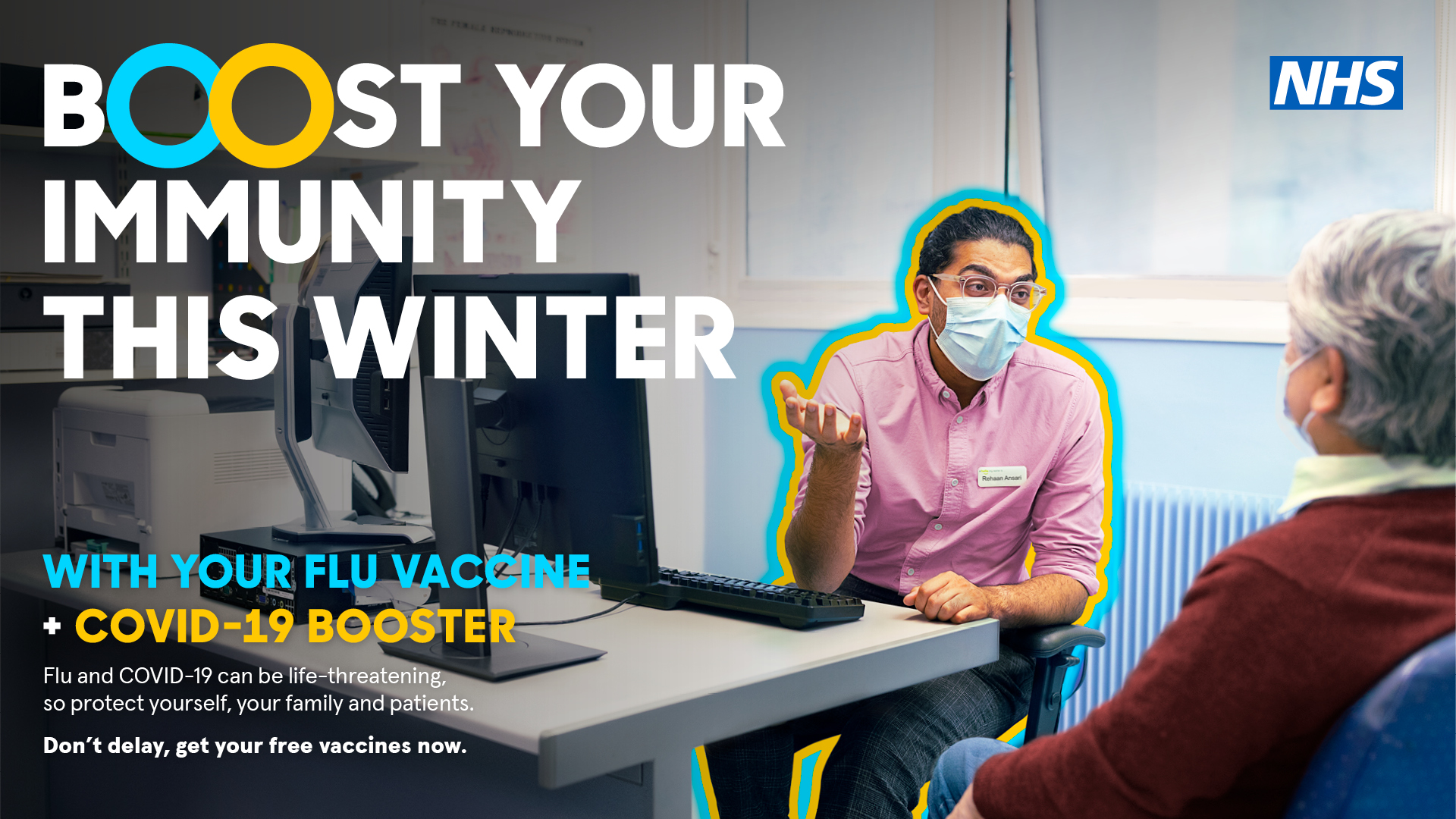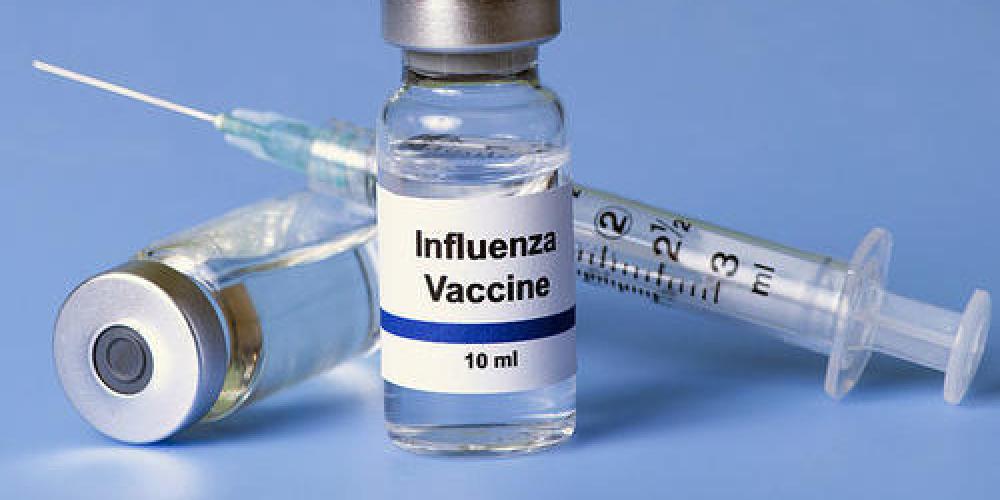Get your flu jab this year
Stop the spread this winter
The flu virus kills almost 11,000 people and hospitalises tens of thousands more in England in an average year. It’s more important than ever to get your flu jab this year.
The flu vaccine is a safe and effective vaccine. It's offered every year on the NHS to help protect people at risk of getting seriously ill from flu.
Flu vaccine and coronavirus (COVID-19)
Flu vaccination is important because:
- more people are likely to get flu this winter as fewer people will have built up natural immunity to it during the COVID-19 pandemic
- if you get flu and COVID-19 at the same time, research shows you're more likely to be seriously ill
- getting vaccinated against flu and COVID-19 will provide protection for you and those around you for both these serious illnesses
If you've had COVID-19, it's safe to have the flu vaccine. It will still be effective at helping to prevent flu.
Who can have the flu vaccine?
The flu vaccine is given free on the NHS to people who:
- are 50 and over (including those who'll be 50 by 31 March 2022)
- have certain health conditions
- are pregnant
- are in long-stay residential care
- receive a carer's allowance, or are the main carer for an older or disabled person who may be at risk if you get sick
- live with someone who is more likely to get infections (such as someone who has HIV, has had a transplant or is having certain treatments for cancer, lupus or rheumatoid arthritis)
- frontline health or social care workers
Where to get the flu vaccine
You can have the NHS flu vaccine at:
- your GP surgery
- a pharmacy offering the service
- your midwifery service if you're pregnant
- a hospital appointment
If you do not have your flu vaccine at your GP surgery, you do not have to tell the surgery. This will be done for you.
Flu vaccine for people with long-term health conditions
The flu vaccine is offered free on the NHS to anyone with a serious long-term health condition, including:
- respiratory conditions, such as asthma (needing steroid inhaler or tablets), chronic obstructive pulmonary disease (COPD) including emphysema and bronchitis.
- diabetes
- heart conditions, such as coronary heart disease or heart failure
- being very overweight – a body mass index (BMI) of 40 or above
- chronic kidney disease
- liver disease, such as hepatitis
- neurological conditions, such as Parkinson's disease, motor neurone disease, multiple sclerosis (MS) or cerebral palsy
- a learning disability
- problems with your spleen, for example, sickle cell disease, or if you have had your spleen removed
- a weakened immune system as the result of conditions such as HIV and AIDS, or taking medicines such as steroid tablets or chemotherapy
Talk to your doctor if you have a long-term condition that is not in one of these groups. They should offer you the flu vaccine if they think you're at risk of serious problems if you get flu.
Flu vaccine if you're pregnant
You should have the flu vaccine if you're pregnant to help protect you and your baby.
It's safe to have the flu vaccine at any stage of pregnancy.
For more information visit https://www.nhs.uk/conditions/vaccinations/flu-influenza-vaccine/




